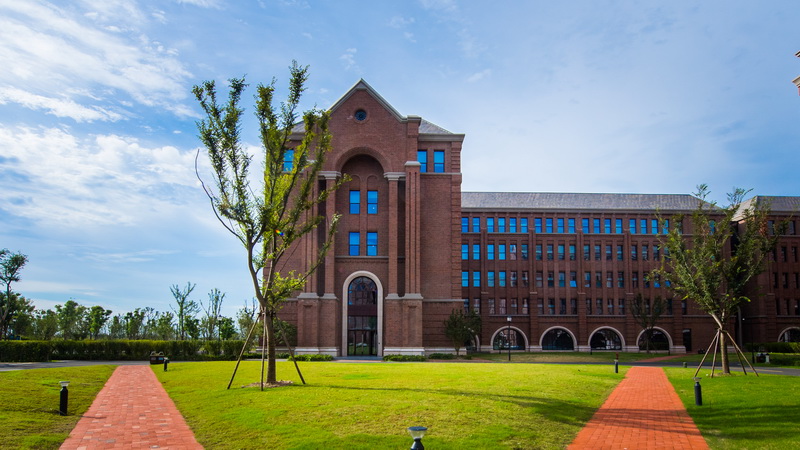Basic Discrete Mathematics
MATH 213

Course Code
MATH 213
Course Name
Basic Discrete Mathematics
Credit
3.0 - 3.0
Instructors
Parent ID
Semester (field_semester)
- Any -2016/2017 Fall Winter2016/2017 Spring Summer2017/2018 Fall Winter2017/2018 Spring Summer2018/2019 Fall Winter2018/2019 Spring Summer2019/2020 Fall Winter2019/2020 Spring Summer2020/2021 Fall Winter2020/2021 Spring Summer2021/2022 Fall Winter2021/2022 Spring Summer2022/2023 Fall Winter2022/2023 Spring Summer
Apply
2021/2022 Fall Winter
Thomas,Honold
2020/2021 Fall Winter
Schewe, Klaus-Dieter
2019/2020 Fall Winter
Schewe, Klaus-Dieter
2018/2019 Fall Winter
刘炜
2017/2018 Fall Winter
Thomas, Honold
Introduction
Beginning course on discrete mathematics, including sets and relations, functions, basic counting techniques, recurrence relations, graphs and trees, and matrix algebra; emphasis throughout is on algorithms and their efficacy.
Credit is not given for both MATH 213 and CS 173. Prerequisite: MATH 220 or MATH 221, or equivalent.
Beginning Composition
MUS 106

Course Code
MUS 106
Course Name
Beginning Composition
Credit
2.0 - 2.0
Instructors
Parent ID
Semester (field_semester)
- Any -2016/2017 Fall Winter2016/2017 Spring Summer2017/2018 Fall Winter2017/2018 Spring Summer2018/2019 Fall Winter2018/2019 Spring Summer2019/2020 Fall Winter2019/2020 Spring Summer2020/2021 Fall Winter2020/2021 Spring Summer2021/2022 Fall Winter2021/2022 Spring Summer2022/2023 Fall Winter2022/2023 Spring Summer
Apply
Introduction
Class instruction in contemporary compositional practice at the beginning stages.
Behavior of Materials
CEE 300

Course Code
CEE 300
Course Name
Behavior of Materials
Credit
4.0 - 4.0
Instructors
Parent ID
Semester (field_semester)
- Any -2016/2017 Fall Winter2016/2017 Spring Summer2017/2018 Fall Winter2017/2018 Spring Summer2018/2019 Fall Winter2018/2019 Spring Summer2019/2020 Fall Winter2019/2020 Spring Summer2020/2021 Fall Winter2020/2021 Spring Summer2021/2022 Fall Winter2021/2022 Spring Summer2022/2023 Fall Winter2022/2023 Spring Summer
Apply
Introduction
Macroscopic mechanical behavior in terms of phenomena at the nanometer and micrometer levels for the three types of engineering materials (metals, ceramics, and polymers) with emphasis on specific materials used in civil engineering -- steel, rocks, clay, portland cement concrete, asphaltic concrete, and wood.
Same as TAM 324. Credit is not given for both CEE 300 and either ME 330 or MSE 280. Prerequisite: Completion of Composition I general education requirement; CHEM 104; TAM 251.
Students must register for one lab and one lecture section.
Bioinformatic and statistical analysis of genomic data
IBMS7121015

Course Code
IBMS7121015
Course Name
Bioinformatic and statistical analysis of genomic data
Credit
1.0 - 1.0
Instructors
Parent ID
Semester (field_semester)
- Any -2016/2017 Fall Winter2016/2017 Spring Summer2017/2018 Fall Winter2017/2018 Spring Summer2018/2019 Fall Winter2018/2019 Spring Summer2019/2020 Fall Winter2019/2020 Spring Summer2020/2021 Fall Winter2020/2021 Spring Summer2021/2022 Fall Winter2021/2022 Spring Summer2022/2023 Fall Winter2022/2023 Spring Summer
Apply
Introduction
This course conducts hands-on workshops for graduate students in biomedical related majors who are interested in learning big data analysis, basic programming and statistical techniques, especially for next generation sequence genomics data. The topics include introduction to linux command line, R programming, NGS data analysis for Whole Genomic Sequencing (WGS), RNA-seq, ChIP-seq, scRNA-seq, ATAC-seq etc. We will also cover how to make scientific figures with Adobe Illustrator.
Biomedical Disorder 1
IBMS7111001

Course Code
IBMS7111001
Course Name
Biomedical Disorder 1
Credit
12.0 - 12.0
Instructors
Parent ID
Semester (field_semester)
- Any -2016/2017 Fall Winter2016/2017 Spring Summer2017/2018 Fall Winter2017/2018 Spring Summer2018/2019 Fall Winter2018/2019 Spring Summer2019/2020 Fall Winter2019/2020 Spring Summer2020/2021 Fall Winter2020/2021 Spring Summer2021/2022 Fall Winter2021/2022 Spring Summer2022/2023 Fall Winter2022/2023 Spring Summer
Apply
Introduction
The aim of the course is to provide the students with a deeper understanding of a variety of biomedical disorders, and the possibilities and limitations of fundamental and translational research environments and tools. Throughout this course they will be taught by basic and translational researchers across the thematic research areas of ZJE (vertical themes) including: ? Infection medicine ? Cancer ? Neuroscience/neuroendocrinology ? Development, stem cells, regeneration & repair ?
Biomedical Disorder 1B
IBMS7111001B

Course Code
IBMS7111001B
Course Name
Biomedical Disorder 1B
Credit
12.0 - 12.0
Instructors
Parent ID
Semester (field_semester)
- Any -2016/2017 Fall Winter2016/2017 Spring Summer2017/2018 Fall Winter2017/2018 Spring Summer2018/2019 Fall Winter2018/2019 Spring Summer2019/2020 Fall Winter2019/2020 Spring Summer2020/2021 Fall Winter2020/2021 Spring Summer2021/2022 Fall Winter2021/2022 Spring Summer2022/2023 Fall Winter2022/2023 Spring Summer
Apply
Introduction
Biomedical Disorder 1B
Biomedical Disorder 2
IBMS7113001

Course Code
IBMS7113001
Course Name
Biomedical Disorder 2
Credit
6.0 - 6.0
Instructors
Parent ID
Semester (field_semester)
- Any -2016/2017 Fall Winter2016/2017 Spring Summer2017/2018 Fall Winter2017/2018 Spring Summer2018/2019 Fall Winter2018/2019 Spring Summer2019/2020 Fall Winter2019/2020 Spring Summer2020/2021 Fall Winter2020/2021 Spring Summer2021/2022 Fall Winter2021/2022 Spring Summer2022/2023 Fall Winter2022/2023 Spring Summer
Apply
Introduction
The aim of this course is to provide an overall vision of current biomedical research development. The topic varies from infectious diseases, oncology, regenerative medicine, child health and disease, reproductive medicine and diabetes etc. Each topic will be given a lecture and relevant publication (original paper) analysis. The students will participate once a week classes through all academic year. The taught language is English. This course is only available to students enrolled on the integrated 4-year dual PhD programme.
Biomedical Disorder 2B
IBMS7113001B

Course Code
IBMS7113001B
Course Name
Biomedical Disorder 2B
Credit
0.0 - 0.0
Instructors
Parent ID
Semester (field_semester)
- Any -2016/2017 Fall Winter2016/2017 Spring Summer2017/2018 Fall Winter2017/2018 Spring Summer2018/2019 Fall Winter2018/2019 Spring Summer2019/2020 Fall Winter2019/2020 Spring Summer2020/2021 Fall Winter2020/2021 Spring Summer2021/2022 Fall Winter2021/2022 Spring Summer2022/2023 Fall Winter2022/2023 Spring Summer
Apply
Introduction
Biomedical Disorder 2B
Biomedical Genetics 2
IBMS8006

Course Code
IBMS8006
Course Name
Biomedical Genetics 2
Credit
5.0 - 5.0
Instructors
Parent ID
Semester (field_semester)
- Any -2016/2017 Fall Winter2016/2017 Spring Summer2017/2018 Fall Winter2017/2018 Spring Summer2018/2019 Fall Winter2018/2019 Spring Summer2019/2020 Fall Winter2019/2020 Spring Summer2020/2021 Fall Winter2020/2021 Spring Summer2021/2022 Fall Winter2021/2022 Spring Summer2022/2023 Fall Winter2022/2023 Spring Summer
Apply
2021/2022 Fall Winter
Dokuchaev,Nikolai
2020/2021 Fall Winter
陈迪, 戈万忠, 李晨, 杨小杭
2019/2020 Fall Winter
仓晓慧, 戈万忠, 席咏梅, 杨小杭
2018/2019 Fall Winter
戈万忠, 杨小杭, 周怡然
2017/2018 Fall Winter
徐素宏, 杨小杭
Introduction
Biomedical Genetics 2 aims to investigate the basis of modern human molecular genetics. The course focuses on the development of knowledge and understanding of the organisation of the human genome, and the regulation and function of gene expression. Concepts will be introduced in lectures through evaluation of experimental approaches and genomic technologies used in the analysis of the structure and expression of genes, including in model organisms.
Biomedical Horizons
IBMS8012

Course Code
IBMS8012
Course Name
Biomedical Horizons
Credit
5.0 - 5.0
Instructors
Parent ID
Semester (field_semester)
- Any -2016/2017 Fall Winter2016/2017 Spring Summer2017/2018 Fall Winter2017/2018 Spring Summer2018/2019 Fall Winter2018/2019 Spring Summer2019/2020 Fall Winter2019/2020 Spring Summer2020/2021 Fall Winter2020/2021 Spring Summer2021/2022 Fall Winter2021/2022 Spring Summer2022/2023 Fall Winter2022/2023 Spring Summer
Apply
2021/2022 Spring Summer
Majeokudunmi,Ayo, Shytikov,Dmytro
2019/2020 Spring Summer
Jones, Joshua, Majeokudunmi, Ayo
Introduction
<p>Global Challenges (GC) / Biomedical Horizons (BH) is an interdisciplinary course that draws on expertise from across the University of Edinburgh, Zhejiang University and the new international research institute in Haining to explore how biomedical science can be used to address some of the challenges facing the world. Central to the course are a series of guest lectures that will draw on ‘hot topics’ in biomedicine and their wider relevance.





